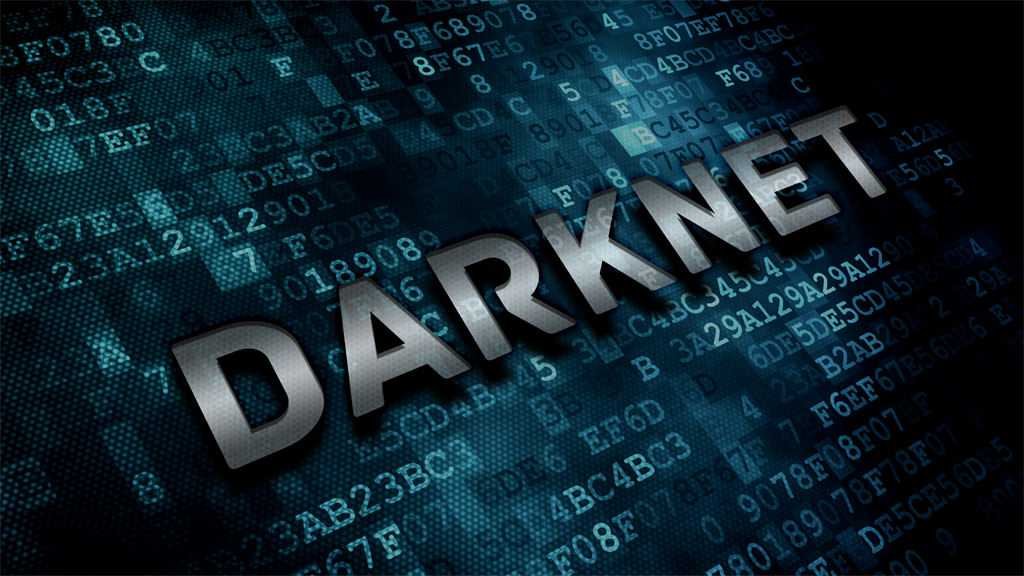Read: Deep Web: The scary immoral Internet. Of the millions of people who "surf" every day from their computer or "smart" device, many may not have realized that, apart from the "visible" Internet, there is also a parallel online "universe" of services and websites in which there is no chance that they will... stumble upon them by chance.

Inaccessible to conventional browsers, this "universe" has been "christened" Dark Internet (Darknet). A name owed to the fact that it remains hidden from the search engines that "scan" the web, as well as from law enforcement or other government agencies around the world.
Read: Deep Web The side of the internet you do not see!
The logic of Darknet is to provide anonymity to those who use it - something that, as in the real world, is an opportunity that criminals would not miss. Among the illegal activities that have found a "roof" in it, at the top of the list is the trafficking of any kind of illegal product or material. Thus, the Dark Internet is heavily recruited for buying and selling child pornography, drugs, weapons, stolen credit cards and fake IDs.
In most cases, illegal transactions take place from online "black markets", ie sites where "sellers" post their ads and accept orders. As legal e-commerce works, the products are sent by post, to the address chosen by the buyer. With the difference that the buying and selling is mostly done in bitcoin, the virtual currency in which a central bank is not involved, making transactions more difficult to detect.
Το Darknet είναι ένα δίκτυο από σέρβερ, οι οποίοι βασίζονται σε τεχνολογίες κρυπτογράφησης για να ανταλλάσσουν δεδομένα. Η πιο διαδεδομένη τεχνολογία γι' αυτό τον σκοπό είναι το Tor (The onion router), which was originally developed by the US Naval Research Laboratory, to protect military communications. Thanks to Tor, a site can hide its digital footprints by "camouflaging" the server that hosts it. At the same time, the technology ensures that only users who have installed the corresponding software on their machine have access to the Dark Internet. Software that also guarantees their own anonymity.
Until recently, even if one had installed the software, he should also know the specific address of each website he wants to visit. However, a few weeks ago, Darknet acquired its own "specter," the Grams, a search engine that gathered results from eight online "black markets" and their ads. Of course, Grams' motivator is the profit, as he said in the American magazine Wired, he will soon begin to charge those who want their ads to appear higher in the results.
After all, profit is also the main reason why most of these websites appeared after last October, and despite the arrest by the FBI at the time of the man who is alleged to be the "mastermind" behind Silk Road, - "one of the most sophisticated online "black markets"" as it has been characterized. This is because, based on the case file, Silk Road's revenue in less than 3 years of operation reached 80 million dollars, from the commission it charged for each purchase and sale. In fact, the transactions that took place in space operating the site seems to have exceeded 1,2 billion dollars.
However, according to law enforcement authorities around the world, the Dark Internet makes online crime more difficult to deal with, but not impossible. Thus, while the accused as the manager of Silk Road is waiting to be tried, facing a prison sentence of at least 30 years, in February another online "black market" was dismantled, Utopia, with the arrest of five suspects by the Dutch and German police.
It is a common policy not to disclose what kind of electronic countermeasures they employ - in the case of Silk Road, the FBI spokesman merely referred to "human errors" that led to the trace of his manager. On the other hand, the authorities exploit the fact that crimes in the online world also leave traces in the real world: for the dismantling of Utopia, according to the Dutch police press release, police officers played the "customers" buying drugs and weapons. "The business sends a clear message that no one can slip out because it uses Tor," the announcement says.
The bright side
Darknet may come to the news usually on the occasion of police operations targeting "black markets" like Silk Road, but that does not mean it's just online as the real underworld. "The Dark Internet also has an extremely important" bright "side, ensuring freedom of expression for people living in totalitarian regimes and helping to bring to light sharply documented documents, without the fear of those who have leaked them that they will be prosecuted," says Brad Chacos from PC World magazine.
Indicatively, Darknet has occasionally hosted copies of GlobalLeaks and Wikileaks, while New Yorker has created Strongbox, a service on the Dark Internet that guarantees anonymity to those who want to communicate with its authors more secure than the ones offered by emails. In addition, the Reporters Without Borders organization advises its members to use it to contact their sources if they want to ensure that the identity of those who communicate is kept secret.
At the same time, Tor-based tools and services find "shelter" simple users who want to bypass Internet censorship "filters" in their country and, of course, political activists. Thus, according to The Tor Project website, Darknet was flooded by blogs during the "Arab Spring", by people who participated in the uprisings and wanted to carry their testimony abroad. Possibilities that, as the PC World writer notes, could not have come true if the Dark Internet did not offer a level of security that unfortunately makes it appealing to criminals as well.
Source: kathimerini.gr





